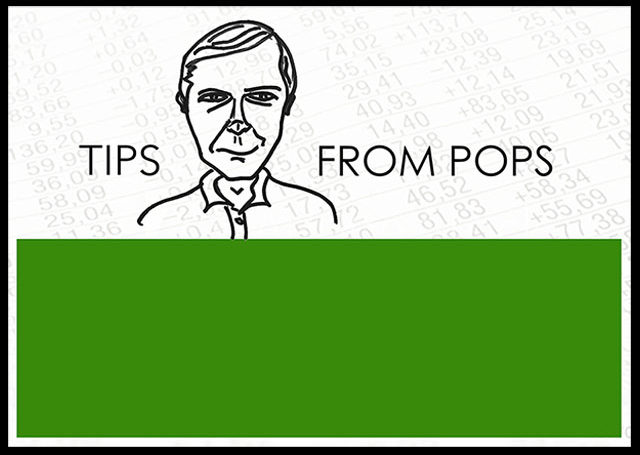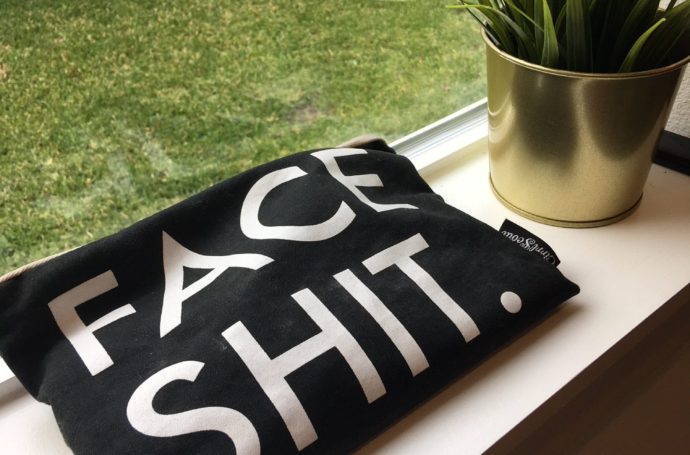I fell asleep at 9:00 pm last night. Ten years ago, maybe fifteen if I’m honest, I would’ve laughed at the thought. But these days, I need my sleep. I need to do what I can to shake off the week; recharge and forget some of the nonsense I’ve continued to allow.
It’s 1:30 in the morning now. I’ve been up since before 1:00. There’s no sign I’ll be back to sleep again anytime soon. It’s an all too familiar dance, really. But tonight, instead of turning on Forensic Files and hoping the narrator’s monotone voice will drown out those swirling in my head, I opened my computer. I came here to talk to you.
Steinbeck or stifled?
I’m a writer by trade. For the past 15 years, it’s been my gig — how I earn my living. In both ad agencies and corporate marketing departments, or as a freelancer working on a diverse array of projects, I’ve honed and evolved my copywriting, storytelling, content marketing and other skills.
There’s a funny thing about writing, though — especially in the professional world. The necessary skills, and consequently, those that possess them, are not always understood or valued.
“Everyone thinks they’re a writer.”
Ever heard that one?
If I were a betting gal, I’d guess — and put a lot of green on it — that this originated in the hallowed halls of some of our most long-standing, well-known corporations. In a world with multiple layers, hard and fast rules and limited flexibility, truly impactful creative work has a real hard time breathing. In fact, as a consumer, what you ultimately view as, say, a TV spot, social media post, print or digital ad, article or design — is often just a sliver of its former self. If even recognizable at all.
Change is good. And it’s coming.
What I’ve mentioned above (creative struggles in traditional environments) has been around as long as corporate tiers and heavy handed management. As a working writer, this has always been the quandary. How do you make a living and still produce something impactful, something you’re proud of and something worth a sh**?
Creative professionals understand the importance of flexibility, compromise and teamwork. And if you’ve been around long enough, you’ve seen proof that experienced input and opinions can make a piece better — more effective. There is, however, a fine line. One that is very hard to nail, especially in more traditional environments.
Contrary to popular belief, writers (designers, etc.) in more structured roles are not all intrinsically difficult people. Rather, they are often inspired sorts, internally driven to think beyond face value or fears. Often seeing beyond the bottom line, they work to find the useful, meaningful and emotional in whatever it is they are supporting. Having worked on creating and supporting efforts in countless industries, I can honestly say that behind almost every product or service, there is a story that matters. There is a reason it exists. There are exceptions, of course, but it’s rare.
The problem isn’t finding or even communicating that special story, that unique difference. It’s allowing that information to survive the approval process. One that can take months or more, and involve an alarming number of “stakeholders” (God, I hate that word) from marketing, business development, engineering, Johnny’s aunt, Tina’s son’s first girlfriend and seven focus groups with 112 people — each whose opinion is often valued over yours, your gut and the core team.
The oddity of it all.
Let me put this into perspective: You’re a well-regarded brain surgeon. You have an untarnished reputation, a string of successful surgeries and hundreds of grateful patients and family members to prove it. You love what you do and you’re considered an expert in your chosen field.
Before your next surgery — one you’ve done countless times before — I’m going to bring in some folks from a health care services company, maybe a few reps from the insurance industry…throw in a couple of administration folks and a dozen more strangers recruited off the street. They’re all going to tell you what they think about the intended procedure, what might not be working, why it makes them uncomfortable and if they think the color of your scrubs are conducive to patient satisfaction.
This all takes (fast-tracked) 47 days. The conclusion? Your original surgery was flawed. They all agree it must be reworked and all opinions and insights will need to be incorporated into the plan you develop for the remaining Q2 surgeries.
In the meantime, your patient has moved on to another surgeon…or worse.
So, you’re comparing writers to brain surgeons?
Not quite. I’m comparing experts to experts. It’s a funny thing, isn’t it? How we treat two crafts so differently — both of which require constant honing, updating, practice and dedication. If you’re an expert, at whatever it is you do, your opinion matters. You’ve earned the right to be heard and respected. This does not mean fine-tuning and input should be eliminated. It shouldn’t. But if you’re good at what you do, you deserve to be in an environment where your work is valued and, at least most of the time, sees the light of day.
The end goal.
If our bar is to bring change…positive change to our lives, to the lives of those around us and ultimately, to our communities and the world as a whole, how do we do that? In my humble opinion, we begin to accomplish this by working together and championing and utilizing each other’s unique gifts, talents and well-earned expertise.
The beauty is, we don’t have to divide up our lives to accomplish this. Not if the leaders (business and otherwise) among us begin to approach leadership with more trust, more compassion, and ultimately less fear (which often manifests itself into control — an environment where innovative ideas go to die.)
But that’s also relying on others to do what’s best for us, and that’s not always reality. The only change we are ultimately in control of is the change we facilitate ourselves. If the environment in your current job isn’t conducive to good work or good mental (and hence, physical) health, only you can really change that. You can first reevaluate and modify how you communicate, how you react, how you work. If that brings positive change, we’re getting somewhere. Maybe staying at a place open to improvement works.
If you modify your approach and your situation doesn’t change, or potentially gets worse, then it’s up to you to make a big decision. In this situation, your happiness might mean a quick exit or working your way toward a more gradual change.
Doing nothing IS an option. But in that scenario, blame can only be on one person. And I think we know who that is.
What now?
This blog makes me happy. I hope it does the same for you. My family and I developed You, Me and the Tree to help others by doing what we love. And I let the struggles of my professional life take me away from it. I checked out. And, you know what, that’s just not working for me.
So, today I’m being brave. I’m putting this out there for all of you who feel the same. For all of you who’ve turned away from your passion, not because you wanted to, but because the pressures of work and life became too much, and your passion became just one more thing to manage.
Looking back, it felt like the right thing to do. Maybe it was at the time. But ultimately, letting go of something I love, in favor of something that, well, you know. It’s a bit of a waste, isn’t it?
Because here’s the thing, to have maximum impact — maximum positive impact, we need to pursue what gets us going. That thing that taps into our well of creativity and ignites it. With YM&TT, the ideas never end. I think of them in the middle of the night, when I’m driving (watch out), in conversation, bloody everywhere (sorry – been watching loads of British YouTubers). That, my friends, is a sign.
I truly believe, now more than ever, that if we put our precious energy toward that thing, good sh** will happen. So, what to do now? What about reality? Bills? The new mortgage? A responsibility to those I love?
I guess I have to do my part and trust in the process. I am part logic, part dreamer. I plan to approach this next phase in my life the same way. But I’m not going to force the square peg into the round hole anymore.
“I have to change to stay the same.” Willem de Kooning, Artist
We’re in this together.
Are you following your passion? If so, let us know how you did it, what struggles you faced and how you came out the other side victorious. If you, like me, are in transition, what are your biggest fears and potential obstacles? Who knows, maybe I can get our resident expert, Momma, to give us a little advice as well.
I’ve missed you guys. Sorry for the hiatus, but I’m back for good now. Let’s do this, together.




